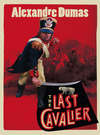Read the book: «La Constantin»
CHAPTER I
Before beginning our story, we must warn the reader that it will not be worth his while to make researches among contemporary or other records as to the personage whose name it bears. For in truth neither Marie Leroux, widow of Jacques Constantin, nor her accomplice, Claude Perregaud, was of sufficient importance to find a place on any list of great criminals, although it is certain that they were guilty of the crimes with which they were charged. It may seem strange that what follows is more a history of the retribution which overtook the criminals than a circumstantial description of the deeds for which they were punished; but the crimes were so revolting, and so unsuitable for discussion, that it was impossible for us to enter into any details on the subject, so that what we offer in these pages is, we confess quite openly, not a full, true, and particular account of a certain series of events leading up to a certain result; it is not even a picture wherein that result is depicted with artistic completeness, it is only an imperfect narrative imperfectly rounded off. We feel sure, however, that the healthy-minded reader will be grateful for our reticence and total disregard of proportion. In spite of the disadvantage which such a theme imposes on any writer with a deep sense of responsibility, we have resolved to let in some light on these obscure figures; for we can imagine no more effective way of throwing into high relief the low morals and deep corruption into which all classes of society had sunk at the termination of the factious dissensions of the Fronde, which formed such a fitting prelude to the licence of the reign of the grand roi.
After this explanation, we shall, without further preamble, introduce the reader to a little tavern in Paris, situated in the rue Saint-Andre-des-Arts, on an evening in November 1658.
It was about seven o’clock. Three gentlemen were seated at one of the tables in a low, smoky room. They had already emptied several bottles, and one of them seemed to have just suggested some madcap scheme to the others, the thought of which sent them off into shouts of laughter.
“Pardu!” said one of them, who was the first to recover his breath, “I must say it would be an excellent trick.”
“Splendid!” said another; “and if you like, Commander de Jars, we can try it this very evening.”
“All right, my worthy king’s treasurer, provided my pretty nephew here won’t be too much shocked,” and as he spoke de Jars gave to the youngest of the three a caressing touch on the cheek with the back of his hand.
“That reminds me, de Jars!” said the treasurer, “that word you have just said piques my curiosity. For some months now this little fellow here, Chevalier de Moranges, follows you about everywhere like your shadow. You never told us you had a nephew. Where the devil did you get him?”
The commander touched the chevalier’s knee under the table, and he, as if to avoid speaking, slowly filled and emptied his glass.
“Look here,” said the treasurer, “do you want to hear a few plain words, such as I shall rap out when God takes me to task about the peccadilloes of my past life? I don’t believe a word about the relationship. A nephew must be the son of either a brother or a sister. Now, your only sister is an abbess, and your late brother’s marriage was childless. There is only one way of proving the relationship, and that is to confess that when your brother was young and wild he and Love met, or else Madame l’Abbesse – .”
“Take care, Treasurer Jeannin! no slander against my sister!”
“Well, then, explain; you can’t fool me! May I be hanged if I leave this place before I have dragged the secret out of you! Either we are friends or we are not. What you tell no one else you ought to tell me. What! would you make use of my purse and my sword on occasion and yet have secrets from me? It’s too bad: speak, or our friendship is at an end! I give you fair warning that I shall find out everything and publish it abroad to court and city: when I strike a trail there’s no turning me aside. It will be best for you to whisper your secret voluntarily into my ear, where it will be as safe as in the grave.”
“How full of curiosity you are, my good friend!” said de Jars, leaning one elbow on the table, and twirling the points of his moustache with his hand; “but if I were to wrap my secret round the point of a dagger would you not be too much afraid of pricking your fingers to pull it off?”
“Not I,” said the king’s treasurer, beginning to twirl his moustache also: “the doctors have always told me that I am of too full a complexion and that it would do me all the good in the world to be bled now and then. But what would be an advantage to me would be dangerous to you. It’s easy to see from your jaundiced phiz that for you blood-letting is no cure.”
“And you would really go that length? You would risk a duel if I refused to let you get to the bottom of my mystery?”
“Yes, on my honour! Well, how is it to be?”
“My dear boy,” said de Jars to the youth, “we are caught, and may as well yield gracefully. You don’t know this big fellow as well as I do. He’s obstinacy itself. You can make the most obstinate donkey go on by pulling its tail hard enough, but when Jeannin gets a notion into his pate, not all the legions of hell can get it out again. Besides that, he’s a skilful fencer, so there’s nothing for it but to trust him.”
“Just as you like,” said the young man; “you know all my circumstances and how important it is that my secret should be kept.”
“Oh! among Jeannin’s many vices there are a few virtues, and of these discretion is the greatest, so that his curiosity is harmless. A quarter of an hour hence he will let himself be killed rather than reveal what just now he is ready to risk his skin to find out, whether we will or no.”
Jeannin nodded approvingly, refilled the glasses, and raising his to his lips, said in a tone of triumph —
“I am listening, commander.”
“Well, if it must be, it must. First of all, learn that my nephew is not my nephew at all.”
“Go on.”
“That his name is not Moranges.”
“And the next?”
“I am not going to reveal his real name to you.”
“Why not?”
“Because I don’t know it myself, and no more does the chevalier.”
“What’ nonsense!”
“No nonsense at all, but the sober truth. A few months ago the chevalier came to Paris, bringing me a letter of introduction from a German whom I used to know years ago. This letter requested me to look after the bearer and help him in his investigations. As you said just now, Love and someone once met somewhere, and that was about all was known as to his origin. Naturally the young man wants to cut a figure in the world, and would like to discover the author of his existence, that he may have someone at hand to pay the debts he is going to incur. We have brought together every scrap of information we could collect as to this person, hoping to find therein a clue that we could follow up. To be quite open with you, and convince you at the same time how extremely prudent and discreet we must be, I must tell you that we think we have found one, and that it leads to no less a dignitary than a Prince of the Church. But if he should get wind of our researches too soon everything would be at an end, don’t you see? So keep your tongue between your teeth.”
“Never fear,” said Jeannin.
“Now, that’s what I call speaking out as a friend should. I wish you luck, my gallant Chevalier de Moranges, and until you unearth your father, if you want a little money, my purse is at your service. On my word, de Jars, you must have been born with a caul. There never was your equal for wonderful adventures. This one promises well-spicy intrigues, scandalous revelations, and you’ll be in the thick of it all. You’re a lucky fellow! It’s only a few months since you had the most splendid piece of good fortune sent you straight from heaven. A fair lady falls in love with you and makes you carry her off from the convent of La Raquette. But why do you never let anyone catch a glimpse of her? Are you jealous? Or is it that she is no such beauty, after all, but old and wrinkled, like that knave of a Mazarin?”
“I know what I’m about,” answered de Jars, smiling; “I have my very good reasons. The elopement caused a great deal of indignation, and it’s not easy to get fanatics to listen to common sense. No, I am not in the least jealous; she is madly in love with me. Ask my nephew.”
“Does he know her?”
“We have no secrets from each other; the confidence between us is without a flaw. The fair one, believe me, is good to look on, and is worth all the ogling, fan-flirting baggages put together that one sees at court or on the balconies of the Palais Roy: ah! I’ll answer for that. Isn’t she, Moranges?”
“I’m quite of your opinion,” said the youth; exchanging with de jars a singularly significant look; “and you had better treat her well, uncle, or I shall play you some trick.”
“Ah! ah!” cried Jeannin. “You poor fellow! I very much fear that you are warming a little serpent in your bosom. Have an eye to this dandy with the beardless chin! But joking apart, my boy, are you really on good terms with the fair lady?”
“Certainly I am.”
“And you are not uneasy, commander?”
“Not the least little bit.”
“He is quite right. I answer for her as for my self, you know; as long as he loves her she will love him; as long as he is faithful she will be faithful. Do you imagine that a woman who insists on her lover carrying her off can so easily turn away from the man of her choice? I know her well; I have had long talks with her, she and I alone: she is feather-brained, given to pleasure, entirely without prejudices and those stupid scruples which spoil the lives of other women; but a good sort on the whole; devoted to my uncle, with no deception about her; but at the same time extremely jealous, and has no notion of letting herself be sacrificed to a rival. If ever she finds herself deceived, good-bye to prudence and reserve, and then – ”
A look and a touch of the commander’s knee cut this panegyric short, to which the treasurer was listening with open-eyed astonishment.
“What enthusiasm!” he exclaimed. “Well, and then – ”
“Why, then,” went on the young man, with a laugh, “if my uncle behaves badly, I, his nephew, will try to make up for his wrong-doing: he can’t blame me then. But until then he may be quite easy, as he well knows.”
“Oh yes, and in proof of that I am going to take Moranges with me to-night. He is young and inexperienced, and it will be a good lesson for him to see how a gallant whose amorous intrigues did not begin yesterday sets about getting even with a coquette. He can turn it to account later on.
“On my word,” said Jeannin, “my notion is that he is in no great need of a teacher; however, that’s your business, not mine. Let us return to what we were talking about just now. Are we agreed; and shall we amuse ourselves by paying out the lady in, her own coin?”
“If you like.”
“Which of us is to begin?”
De Jars struck the table with the handle of his dagger.
“More wine, gentlemen?” said the drawer, running up.
“No, dice; and be quick about it.”
“Three casts each and the highest wins,” said Jeannin. “You begin.”
“I throw for myself and nephew.” The dice rolled on the table.
“Ace and three.”
“It’s my turn now. Six and five.”
“Pass it over. Five and two.”
“We’re equal. Four and two.”
“Now let me. Ace and blank.”
“Double six.”
“You have won.”
“And I’m off at once,” said Jeannin, rising, and muffling himself in his mantle, “It’s now half-past seven. We shall see each other again at eight, so I won’t say good-bye.”
“Good luck to you!”
Leaving the tavern and turning into the rue Pavee, he took the direction of the river.
CHAPTER II
In 1658, at the corner of the streets Git-le-Coeur and Le Hurepoix (the site of the latter being now occupied by the Quai des Augustins as far as Pont Saint-Michel), stood the great mansion which Francis I had bought and fitted up for the Duchesse d’Etampes. It was at this period if not in ruins at least beginning to show the ravages of time. Its rich interior decorations had lost their splendour and become antiquated. Fashion had taken up its abode in the Marais, near the Place Royale, and it was thither that profligate women and celebrated beauties now enticed the humming swarm of old rakes and young libertines. Not one of them all would have thought of residing in the mansion, or even in the quarter, wherein the king’s mistress had once dwelt. It would have been a step downward in the social scale, and equivalent to a confession that their charms were falling in the public estimation. Still, the old palace was not empty; it had, on the contrary, several tenants. Like the provinces of Alexander’s empire, its vast suites of rooms had been subdivided; and so neglected was it by the gay world that people of the commonest description strutted about with impunity where once the proudest nobles had been glad to gain admittance. There in semi-isolation and despoiled of her greatness lived Angelique-Louise de Guerchi, formerly companion to Mademoiselle de Pons and then maid of honour to Anne of Austria. Her love intrigues and the scandals they gave rise to had led to her dismissal from court. Not that she was a greater sinner than many who remained behind, only she was unlucky enough or stupid enough to be found out. Her admirers were so indiscreet that they had not left her a shred of reputation, and in a court where a cardinal is the lover of a queen, a hypocritical appearance of decorum is indispensable to success. So Angelique had to suffer for the faults she was not clever enough to hide. Unfortunately for her, her income went up and down with the number and wealth of her admirers, so when she left the court all her possessions consisted of a few articles she had gathered together out of the wreck of her former luxury, and these she was now selling one by one to procure the necessaries of life, while she looked back from afar with an envious eye at the brilliant world from which she had been exiled, and longed for better days. All hope was not at an end for her. By a strange law which does not speak well for human nature, vice finds success easier to attain than virtue. There is no courtesan, no matter how low she has fallen, who cannot find a dupe ready to defend against the world an honour of which no vestige remains. A man who doubts the virtue of the most virtuous woman, who shows himself inexorably severe when he discovers the lightest inclination to falter in one whose conduct has hitherto been above reproach, will stoop and pick up out of the gutter a blighted and tarnished reputation and protect and defend it against all slights, and devote his life to the attempt to restore lustre to the unclean thing dulled by the touch of many fingers. In her days of prosperity Commander de Jars and the king’s treasurer had both fluttered round Mademoiselle de Guerchi, and neither had fluttered in vain. Short as was the period necessary to overcome her scruples, in as short a period it dawned on the two candidates for her favour that each had a successful rival in the other, and that however potent as a reason for surrender the doubloons of the treasurer had been, the personal appearance of the commander had proved equally cogent. As both had felt for her only a passing fancy and not a serious passion, their explanations with each other led to no quarrel between them; silently and simultaneously they withdrew from her circle, without even letting her know they had found her out, but quite determined to revenge, themselves on her should a chance ever offer. However, other affairs of a similar nature had intervened to prevent their carrying out this laudable intention; Jeannin had laid siege to a more inaccessible beauty, who had refused to listen to his sighs for less than 30 crowns, paid in advance, and de Jars had become quite absorbed by his adventure with the convent boarder at La Raquette, and the business of that young stranger whom he passed off as his nephew. Mademoiselle de Guerchi had never seen them again; and with her it was out of sight out of mind. At the moment when she comes into our story she was weaving her toils round a certain Duc de Vitry, whom she had seen at court, but whose acquaintance she had never made, and who had been absent when the scandalous occurrence which led to her disgrace came to light. He was a man of from twenty-five to twenty-six years of age, who idled his life away: his courage was undoubted, and being as credulous as an old libertine, he was ready to draw his sword at any moment to defend the lady whose cause he had espoused, should any insolent slanderer dare to hint there was a smirch on her virtue. Being deaf to all reports, he seemed one of those men expressly framed by heaven to be the consolation of fallen women; such a man as in our times a retired opera-dancer or a superannuated professional beauty would welcome with open arms. He had only one fault – he was married. It is true he neglected his wife, according to the custom of the time, and it is probably also true that his wife cared very little about his infidelities. But still she was an insurmountable obstacle to the fulfilment of Mademoiselle de Guerchi’s hopes, who but for her might have looked forward to one day becoming a duchess.
For about three weeks, however, at the time we are speaking of, the duke had neither crossed her threshold nor written. He had told her he was going for a few days to Normandy, where he had large estates, but had remained absent so long after the date he had fixed for his return that she began to feel uneasy. What could be keeping him? Some new flame, perhaps. The anxiety of the lady was all the more keen, that until now nothing had passed between them but looks of languor and words of love. The duke had laid himself and all he possessed at the feet of Angelique, and Angelique had refused his offer. A too prompt surrender would have justified the reports so wickedly spread against her; and, made wise by experience, she was resolved not to compromise her future as she had compromised her past. But while playing at virtue she had also to play at disinterestedness, and her pecuniary resources were consequently almost exhausted. She had proportioned the length of her resistance to the length of her purse, and now the prolonged absence of her lover threatened to disturb the equilibrium which she had established between her virtue and her money. So it happened that the cause of the lovelorn Duc de Vitry was in great peril just at the moment when de Jars and Jeannin resolved to approach the fair one anew. She was sitting lost in thought, pondering in all good faith on the small profit it was to a woman to be virtuous, when she heard voices in the antechamber. Then her door opened, and the king’s treasurer walked in.
As this interview and those which follow took place in the presence of witnesses, we are obliged to ask the reader to accompany us for a time to another part of the same house.
We have said there were several tenants: now the person who occupied the rooms next to those in which Mademoiselle de Guerchi lived was a shopkeeper’s widow called Rapally, who was owner of one of the thirty-two houses which then occupied the bridge Saint-Michel. They had all been constructed at the owner’s cost, in return for a lease for ever. The widow Rapally’s avowed age was forty, but those who knew her longest added another ten years to that: so, to avoid error, let us say she was forty-five. She was a solid little body, rather stouter than was necessary for beauty; her hair was black, her complexion brown, her eyes prominent and always moving; lively, active, and if one once yielded to her whims, exacting beyond measure; but until then buxom and soft, and inclined to pet and spoil whoever, for the moment, had arrested her volatile fancy. Just as we make her acquaintance this happy individual was a certain Maitre Quennebert, a notary of Saint Denis, and the comedy played between him and the widow was an exact counterpart of the one going on in the rooms of Mademoiselle de Guerchi, except that the roles were inverted; for while the lady was as much in love as the Duc de Vitry, the answering devotion professed by the notary was as insincere as the disinterested attachment to her lover displayed by the whilom maid of honour.
Maitre Quennebert was still young and of attractive appearance, but his business affairs were in a bad way. For long he had been pretending not to understand the marked advances of the widow, and he treated her with a reserve and respect she would fain have dispensed with, and which sometimes made her doubt of his love. But it was impossible for her as a woman to complain, so she was forced to accept with resignation the persistent and unwelcome consideration with which he surrounded her. Maitre Quennebert was a man of common sense and much experience, and had formed a scheme which he was prevented from carrying out by an obstacle which he had no power to remove. He wanted, therefore, to gain time, for he knew that the day he gave the susceptible widow a legal right over him he would lose his independence. A lover to whose prayers the adored one remains deaf too long is apt to draw back in discouragement, but a woman whose part is restricted to awaiting those prayers, and answering with a yes or no, necessarily learns patience. Maitre Quennebert would therefore have felt no anxiety as to the effect of his dilatoriness on the widow, were it not for the existence of a distant cousin of the late Monsieur Rapally, who was also paying court to her, and that with a warmth much greater than had hitherto been displayed by himself. This fact, in view of the state of the notary’s affairs, forced him at last to display more energy. To make up lost ground and to outdistance his rival once more, he now began to dazzle the widow with fine phrases and delight her with compliments; but to tell the truth all this trouble was superfluous; he was beloved, and with one fond look he might have won pardon for far greater neglect.
An hour before the treasurer’s arrival there had been a knock at the door of the old house, and Maitre Quennebert, curled, pomaded, and prepared for conquest, had presented himself at the widow’s. She received him with a more languishing air than usual, and shot such arrows at him froth her eyes that to escape a fatal wound he pretended to give way by degrees to deep sadness. The widow, becoming alarmed, asked with tenderness —
“What ails you this evening?”
He rose, feeling he had nothing to fear from his rival, and, being master of the field, might henceforth advance or recede as seemed best for his interests.
“What ails me?” he repeated, with a deep sigh. “I might deceive you, might give you a misleading answer, but to you I cannot lie. I am in great trouble, and how to get out of it I don’t know.”
“But tell me what it is,” said the widow, standing up in her turn.
Maitre Quennebert took three long strides, which brought him to the far end of the room, and asked —
“Why do you want to know? You can’t help me. My trouble is of a kind a man does not generally confide to women.”
“What is it? An affair of honour?
“Yes.”
“Good God! You are going to fight!” she exclaimed, trying to seize him by the arm. “You are going to fight!”
“Ah! if it were nothing worse than that!” said Quennebert, pacing up and down the room: “but you need not be alarmed; it is only a money trouble. I lent a large sum, a few months ago, to a friend, but the knave has run away and left me in the lurch. It was trust money, and must be replaced within three days. But where am I to get two thousand francs?”
“Yes, that is a large sum, and not easy to raise at such short notice.”
“I shall be obliged to have recourse to some Jew, who will drain me dry. But I must save my good name at all costs.”
Madame Rapally gazed at him in consternation. Maitre Quennebert, divining her thought, hastened to add —
“I have just one-third of what is needed.”
“Only one-third?”
“With great care, and by scraping together all I possess, I can make up eight hundred livres. But may I be damned in the next world, or punished as a swindler in this, and one’s as bad as the other to me, if I can raise one farthing more.”
“But suppose someone should lend you the twelve hundred francs, what then?”
“Pardieu! I should accept them,” cried the notary as if he had not the least suspicion whom she could mean. “Do you happen to know anyone, my dear Madame Rapally?”
The widow nodded affirmatively, at the same time giving him a passionate glance.
“Tell me quick the name of this delightful person, and I shall go to him to-morrow morning. You don’t know what a service you are rendering me. And I was so near not telling you of the fix I was in, lest you should torment yourself uselessly. Tell me his name.”




















